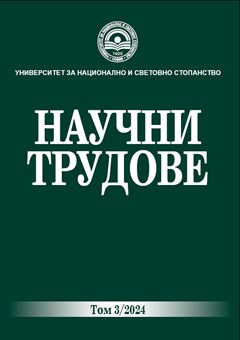Лидерски стил в българските общини
Автор: Лорета Трайкова
Leadership Styles in Bulgarian Municipalities
Loreta Traykova
Резюме
Целта на статията е да изследва прилаганите лидерски стилове в българските общини. В нея се защитава тезата, че при управлението им кметът рядко прилага само един стил, но най-ефективен и предпочитан е този стил на управление, който е насочен към изпълнение на поетите ангажименти към жителите на съответната община/район и служителите в администрацията, защото при управлението на местно ниво от особена важност е близкият, ежедневен контакт на лидера с последователите (на кмета с избирателите и служителите).
Представени са част от резултатите от авторско изследване на кметовете в общините и районите в Република България. Методите, използвани за анализиране на събраните данни, са корелационен анализ, изчисляване на средна аритметична величина и метод на групировките.
Анализът установи, че трансформационният лидерски стил е най-характерен за българските кметове.
В бъдеще може да се изследва взаимовръзка между прилаганият лидерски стил и финансово-икономическото състояние на общината/района. Също така при по-подробни разработки по темата ще бъдат включени качествени методи – дълбочинни интервюта, анализ на случай, с цел разглеждане спецификите на отделния случай и обвързването му с контекстна на средата.
Abstract
The purpose of the article is to explore the leadership styles in Bulgarian municipalities. It argues that in their management the mayor rarely applies only one style, but the most effective and preferred is the leadership style which is oriented at fulfilling the commitments made to the residents of the relevant municipality/district and the employees in the administration, because in the governance at the local level, the close, daily contact of the leader with the followers (of the mayor with the voters and employees) is of particular importance.
Part of the results of an author's study of mayors in municipalities and districts in the Republic of Bulgaria are presented. The methods used to analyse the collected data are descriptive statistics, arithmetic mean calculation and correlation analysis.
The study reveals that the most common leadership style adopted by the Bulgarian mayors is the transformational one.
In further work on the topic, an association between the applied leadership style and the financial-economic condition of the municipality/region can be investigated as well as qualitative methods will also be included – in-depth interviews, case studies, with the aim of examining the specific features of each leadership style and linking them to the broader context.
JEL: H10, Н70, Н79, R00, R50, R59, Z00

